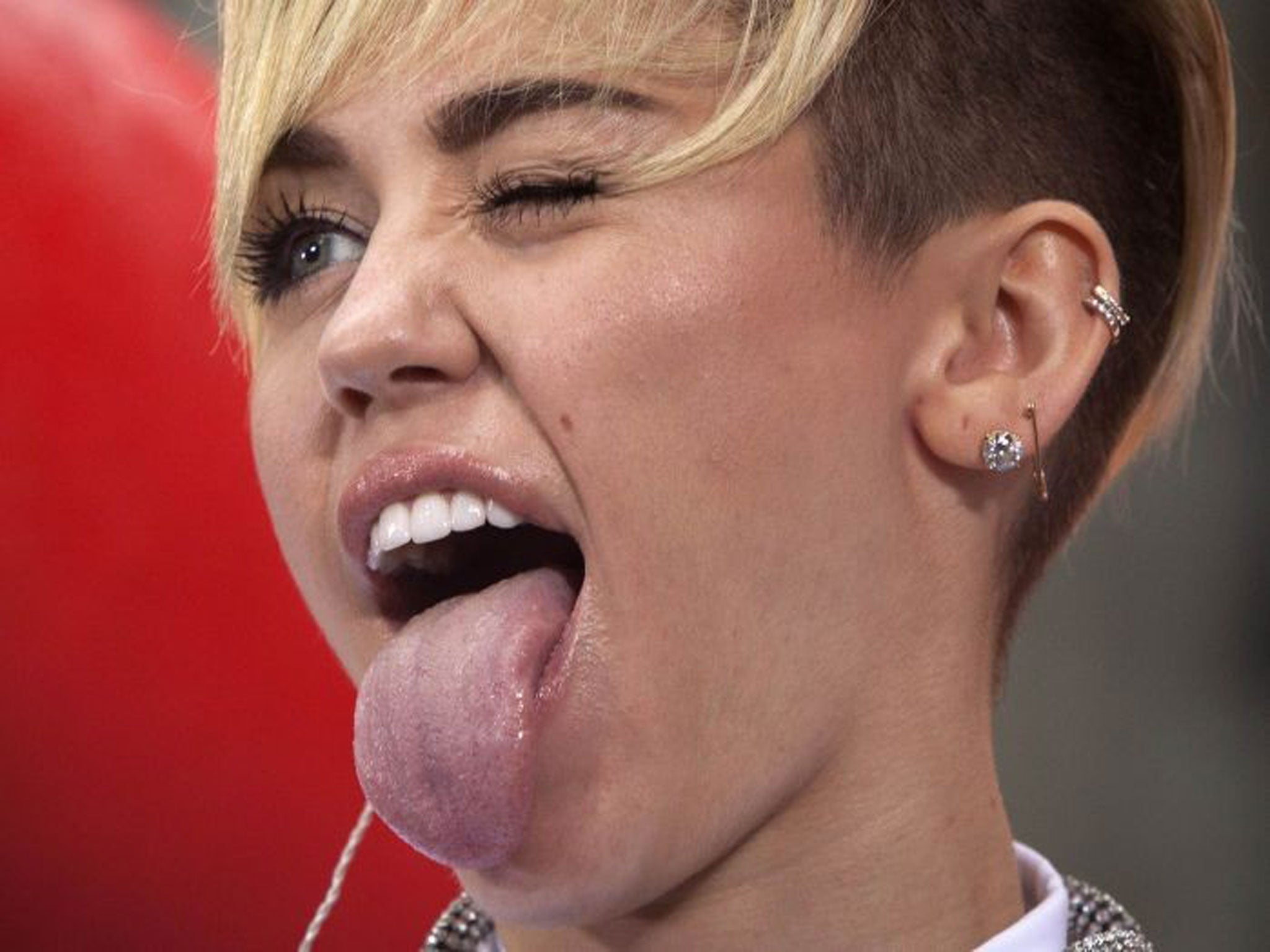I'm one parent who is worried about 'toxic' music videos promoting unhealthy attitudes to sex
There’s a default setting in popular culture: the more outrageous the better


At a moment of parenting weakness, and entirely by accident, I let my three-year-old daughter watch two seconds of the X Factor results show last Sunday evening. It was about 8.15pm – way beyond her bedtime – and, indulgently, I had allowed her to see the start of a natural history programme on BBC2. Perhaps rather bored with the elephants at the watering hole, she turned over to ITV, where Little Mix were on stage performing their latest single. Two seconds was all it took: my child was suddenly carrying out a perfect impression of the gyrating, bottom-thrusting dancing by the all-girl group. Cute? No, it was horrifying, and I couldn’t find the off button fast enough.
If you think I sound as though I have come over all Mary Whitehouse, I tend to agree. I usually find the outrage at Lady Gaga and Miley Cyrus a bit hysterical and, in some cases, hypocritical, when the same “family” newspapers that report how outraged they are publish pictures of barely-clothed women on other pages.
As I am writing this, I feel like a prude, being aghast at Little Mix. They are nowhere near as raunchy as Gaga and Cyrus, after all (though I did not watch Little Mix long enough to witness any twerking). And have I already forgotten the pop stars of my youth – Madonna writhing on a bed in “Like A Virgin”, or Kylie in a bubble bath in “I Should Be So Lucky”? Women acting sexually in pop music is nothing new.
But my daughter’s response, so immediate and a mirror image of what she had seen in just two seconds of TV, hammered home how powerful programmes such as X Factor are to impressionable young girls, and boys. All my own fault for letting her watch TV after 7.30pm, of course. My daughter is just three, and it is depressing to think she has at least two decades ahead of her of sexualised images of women in the media and on TV to fight against. I am not going to ban her from watching TV, but this incident shows how vigilant I need to be.
Echoing my concern is the headteacher of an all-girls private school, who has written of her dismay at celebrities like Cyrus sending out “manipulating and confused” messages to girls and young women. Jo Heywood, the head of Heathfield School, Ascot, says her hopes that last year’s Olympic Games would provide young women with a new generation of role models “recognised for their achievements rather than their looks” have been dashed by the continuing dominance of semi-naked pop stars and reality-TV show personalities.
Last summer, it really did feel as though Jessica Ennis, Laura Trott, Nicola Adams and Victoria Pendleton were changing everything for good: it seemed like an end to the way women’s sport had been treated by the media – that is ignored; that gold medal-winning female sports stars were cooler role models for girls than women who were famous for being someone’s girlfriend, or for wearing very little on TV, or both. To echo what Heywood says, these Olympians stood for hard work, sacrifice and achievement. Before the Olympics, Helen Wright, the former head of the Girls’ Schools Association, said Kim Kardashian represented “almost everything that is wrong with Western society”. But London 2012 seemed to correct all of that.
So what has happened in 2013? It would be impossible to find a huge sporting event like the Olympics to capture the public imagination on the same scale, yet coverage of women’s sport has hardly improved. And the bad female role models remain. There’s a default setting in popular culture: the racier and the more outrageous the better. Cyrus is a particularly appalling example because of her transformation from wholesome Disney character Hannah Montana to the twerking pop star on MTV’s Video Music Awards. Girls who watched the Disney channel will have Hannah Montana posters on their walls – they will be left feeling manipulated and confused by her “mixed messages”, says Heywood.
Just as there is nothing new in female pop stars acting sexy, concern over bad role models is not new, either. But that shouldn’t stop us demanding a better alternative. It is very difficult to stop Cyrus – or her management, or record company, depending on who you believe – dreaming up more ways to shed the Disney princess image. I don’t fear for my daughter’s safety by her accidentally watching the X Factor, just as I wasn’t particularly damaged by watching Madonna’s music videos. But the way to fight it is to show our little girls what else is out there: cool and exciting female role models in sport, politics, business and science.
To mark Tomorrow’s Engineers Week, Vince Cable is warning that the lack of girls studying physics, maths and engineering is leading to dreadfully low rates of female engineers, posing “enormous problems” for our economy. Half of all state schools do not have a single girl doing physics, the Business Secretary says, leaving half the population untapped because of a “psychological barrier” and belief that science is for boys.
It is, then, up to schools (and us as parents) to promote interest in things such as sport and engineering. We cannot stop our daughters switching the TV over to the X Factor, but we can wrench the remote control back to show there is a cooler alternative.

Join our commenting forum
Join thought-provoking conversations, follow other Independent readers and see their replies